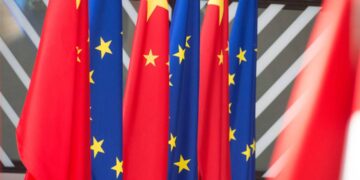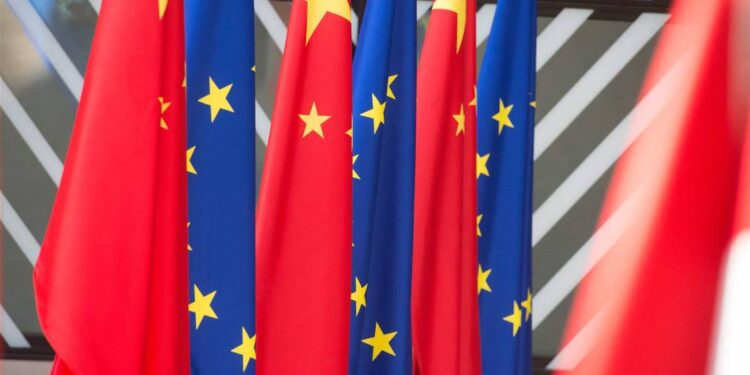By Oyintari Ben
At a meeting this month, Washington and the EU will commit to working together to address concerns about China’s non-market practices and to coordinate their export controls on semiconductors and other products.
This was revealed in a drafting statement.
The fourth meeting of the EU-US Trade and Technology Council (TTC), scheduled for May 30-31 in Lulea, Sweden, will bring together senior officials, including US Secretary of State Antony Blinken, Vice-President Margrethe Vestager of the European Commission, and others.
In an indirect allusion to China, the drafted statement stated the two sides would discuss non-market practices and economic coercion and seek to hold frequent discussions on attempts to stop their companies’ knowledge of outbound investment backing technology of strategic rivals.
The statement, which only names China twice and could potentially alter before the summit, stated that they would also coordinate their export controls on “sensitive items” (including those with military use) and semiconductors.
According to Brussels, China is an economic opponent, a strategic foe, and a partner in some industries. The European Union intends to reevaluate its China strategy, realising the importance of working in tandem with a more confrontational United States.
The document referred specifically to the Chinese market for medical equipment. It stated that the transatlantic partners are “exploring possible actions” in response to the threat posed by non-market rules and practices.
Additionally, they want to work together to combat information sabotage by other governments, including “China’s amplification of Russian disinformation narratives about the war” in Ukraine.
The G7 will be used to coordinate efforts to fight acts of economic coercion, such as the trade restrictions China is said to have placed on EU member Lithuania, according to the two parties.




































